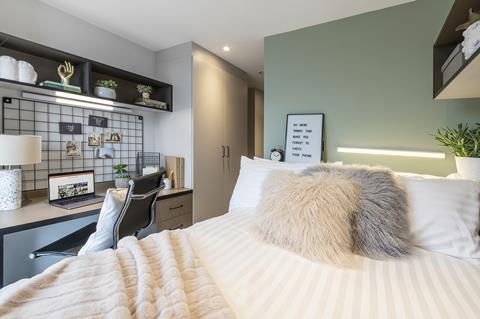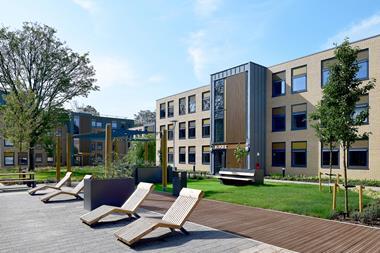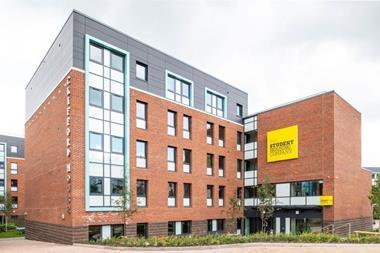Before the March lockdown, the student accommodation sector was probably having the best year to date. The student housing cycle is very much eat, sleep repeat - and once October rolls around, you do it all over again.

During the booking cycle around February/March time, right before lockdown was imposed, our occupancy was probably its highest level it had been over the last five to six years.
Once lockdown hit, it became all about communication. To staff, students, and clients who own the student halls. Part of our resilience – and not from just ourselves but the whole industry – was making sure everyone felt connected. It prompted the conversation about being available to people, and we’ve always been a people-centred business. We have to be, but covid has elevated that need even more for us.
Hard decisions
The pandemic had forced some quite big decisions within our business. As a senior team, we were quite insistent that we did not want it to affect the service we offer. So through the whole of lockdown, we put a minimum number of people on furlough (and it was seriously a handful of people).
From the outside, what people saw was the government urging landlords to give a rent-free period or to freeze rent, and within our industry, students heard the term landlord and thought surely that applies to us. As an operator, with our name on the buildings etc, we had to be quite transparent with our students that it’s not up to us to waive rent.
There is no template that tells you what to do in a pandemic.
Within our portfolio, we probably have 50-60 different clients and we gave our advice on what we thought was morally the right thing to do. We obviously had to look at what it would mean commercially to each of our landlords. Pretty much 99% of them agreed that it’s an unprecedented event and so we didn’t collect rent for that third term.
Further in the cycle when we were in lockdown in November, that conversation started again. I guess we took a slightly different stance as earlier in the year students had booked not knowing a pandemic was on the way, but this time if you booked during a pandemic, there was a slightly different contract, should we say.

That second lockdown did feel different. We know probably 70% of students returned to their student accommodation, rather than stay at home.
There was that buoyancy in the appeal of student accommodation for domestic students who perhaps did not want to spend another lockdown with mum and dad.
Uncertainty abroad
International students, however, just couldn’t come. I think the industry relies quite heavily on China, followed by India, and we were hearing stories that there weren’t flights flying in or out of Beijing or other regional airports and of students that would only come if there were direct flights. Pre-pandemic people would often stopover in Europe, and break up the journey, but I guess people didn’t really feel that was the safe option.
We asked a partner in China who we work with for our marketing, about what was being said in China about the Western World. There was quite a lot of concern around the Xenophobia - if you came over to the UK or to America or another European destination, would you get abused?
Obviously our occupancy for the last year was not at the levels we’d normally expect but we’ve bounced back very strongly and now it’s up in the 90% bracket.
The world has changed completely at how we look at safety and communication. There is no template that tells you what to do in a pandemic but I’m proud of how we worked during those hard times and it’s given us an opportunity to refocus our operations and keep students at the heart of everything we do.
Richard Skeels, Chief Executive Officer of CRM Students

































No comments yet